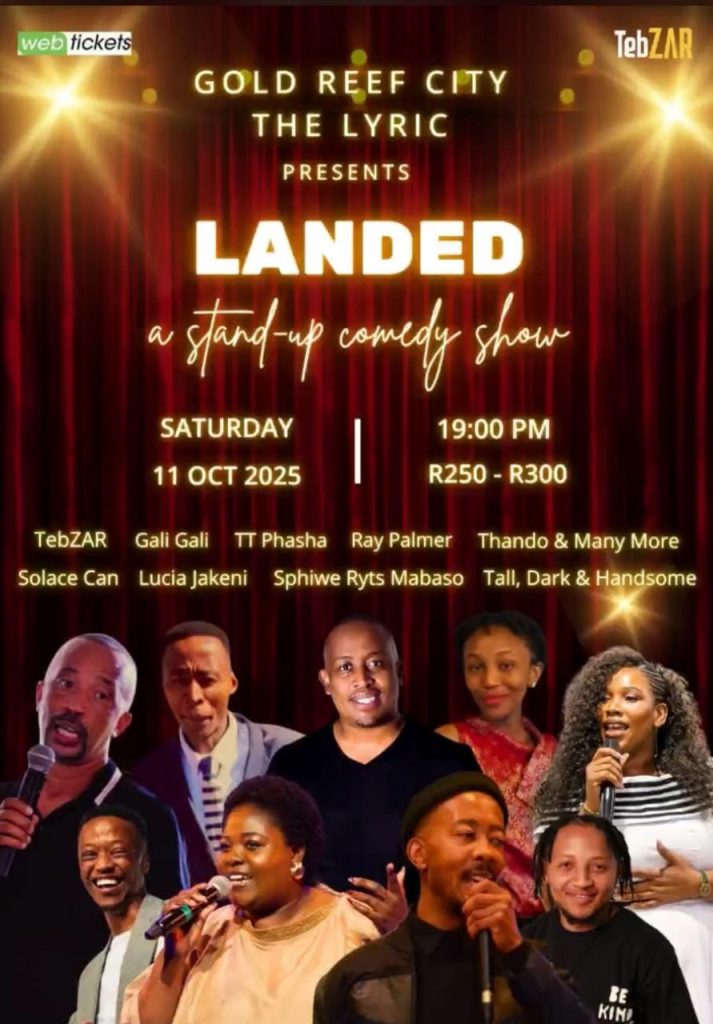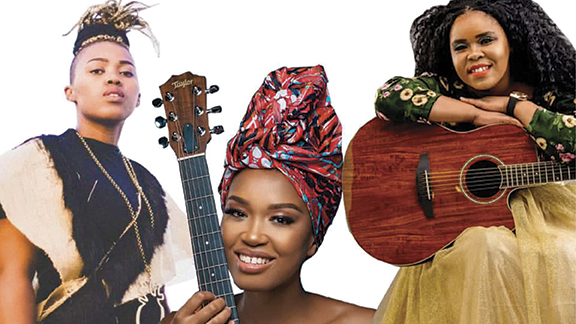South Africa Needs More Spit Braais
By Teboho “TebZAR” Lempe
Every South African knows a spit braai. It’s more than just meat turning on a fire it’s a ritual of contribution. Someone brings the beef, another brings the sides, and many others bring the liquid courage, but we all bring the laughter. Everyone eats, everyone benefits. That’s how we’ve always survived collective effort, collective enjoyment.
I believe my life has been a series of spit braais. Family, community, education, career – recently, comedy became a table where people brought their offerings, and I, in turn, learnt to share mine. Today, I believe South Africa needs more spit braais, not just around fires, but in how we tackle our most significant challenges: complacency, inaction, and subpar performance. My grandfather, Nkoko Lempe, ran a tent rental business in the Vaal in the early 1980s. While his workers set up, he made me dance to “Billie Jean.” That was my first lesson in business and performance I was three years old.
My parents added their own ingredients. My father, Jabari, an electrical technician and a man who devoted his life to the church, reminded me to obey my parents, trust God, and go to school. That’s precisely what I did. My mother, Sibongile, a lifelong teacher, showed me that personal development has no expiry date, earning two postgraduate degrees later in life. The family spit braai was filled with resilience, faith and humour. These attributes would later define the greater part of my character. Career progress in 1988 necessitated a relocation to Katlehong. I learnt economics through unusual means. My friends and I would hunt and roast mbiba (striped rats) over open fires as a means of self-reliance at the age of 5. To us, that spit braai was not desperation, it was enterprise. Everyone contributed, everyone shared and everyone laughed. My mother found it appalling; we don’t get to choose our life’s lessons, let alone the subject of learning. Looking back, it was an early lesson in shared value: progress happens when everyone brings something to the table. We moved to Dawn Park, an ideal environment for young people to thrive and develop.
Sporting options, music and the optimism of a new democracy surrounded us. We could be anything we wanted. Joel Stransky’s opportunistic kick in the Rugby World Cup final was an infusion of belief, take aim and go for it. Josiah Thugwane had won a gold medal at the 1996 Olympics marathon from very humble beginnings. Josiah’s leadership was not about charismatic leadership, but rather demonstration. Mark Williams came on in the second half and, boy, he brought his share to the table, scoring two goals in an AFCON win in 1996. The air of a collective spirit builds identity and powers results. The sharp contrast to the current environment, where young people are inundated with corruption updates and few employment opportunities, exposes them to mental health issues and drug abuse addiction. I attended Wits University with the express intention of learning, having fun, and building relationships. I participated in the Wits Business Society, where we had guests like Sizwe Nxasana and Mark Lamberti. We thought they would bring prestige and elitist mindsets, but what we got were sharp lessons in personal leadership.
At PKF, a predominantly Jewish firm where I completed my articles, I encountered a community that thrived on shared identity and resilience. One elder, Mr. Fisher Hoffman, worked until the age of 93, climbing the stairs every day while we younger accountants queued for the lift. Again, resilience was a lesson observed. His example taught me that purpose, not a paycheck, keeps you alive. That spit braai prepared me for a career in finance, strategy and leadership, where contribution is as significant as competence. Comedy was my return to the fire. During the COVID pandemic, Netflix asked if I was okay after bingeing everything they had. I took the hint and tried comedy myself, after encouragement from my friends and family members. I completed two one-person shows in a span of two years: ‘It’s Mine’ at Niki’s Jazz Restaurant in Newtown and ‘The Green Apple’ at Theatre at the Square in Sandton. Comedy became my modern spit braai: a stage where I serve humour seasoned with South African realities of economic stress, family duties and inequality. The audience brings recognition; I bring laughter. Together, we create a release. On 11 October 2025, I will host Landed at Gold Reef City, alongside eight other comedians, poets and musicians. For me, this is more than a show. It’s a modern spit braai blending opportunity and talent. Everyone contributes, and the performers, audiences, and sponsors all benefit.
Everyone is bringing something to the fire. This builds on initiatives like the Seriously Funny competition and my podcast TebZAR, where I create spaces for young voices and fresh ideas. These are my ways of paying forward what was given to me: tables where others can eat, laugh and grow. They are my ways of keeping the fire burning for others. Every spit braai in my life taught me the same principle: contribution matters. Whether it was my mother’s postgraduate degrees, a roasted rat in Katlehong, a lecture hall at Wits, or a stage spotlight, I learnt that shared value fuels progress.
South Africa faces significant challenges, including youth unemployment, inequality, and shrinking opportunities across fraternities. But the solution isn’t abstract. It’s cultural. If we revive the spit braai mindset, where everyone brings what they have, and collective effort fuels collective progress, we can tackle these challenges with creativity and resilience. Leadership, I’ve learned, isn’t about standing at the head of the table, it’s about making sure everyone has something to bring to it. We need to see more leadership where leaders are creating space for others to contribute South Africa doesn’t need more lone heroes. It requires more spit braais. Around fires. It needs leaders who can build tables and fires big enough for everyone to gather around. In boardrooms. On stages. In classrooms. That’s how we’ll move forward. And if all else fails, at least we’ll still know how to make a rat taste like steak.



